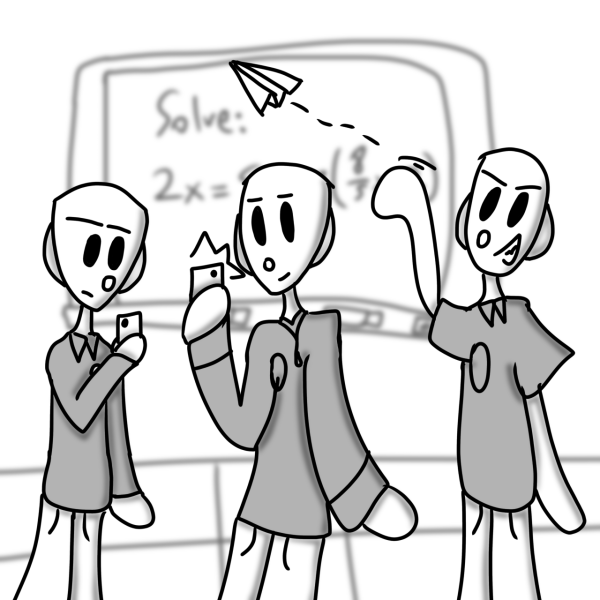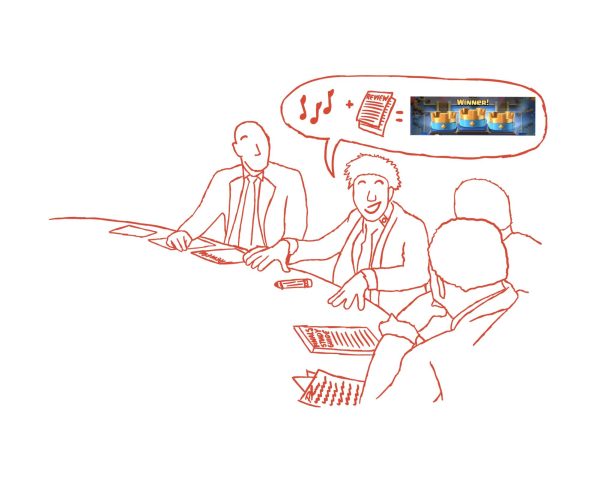Raising minimum wages spells disaster for business
The minimum wage has been experiencing significant changes as of late. Illinois is in the process of raising the minimum wage to $15 by 2025. This is done with good intentions; however, the unforeseen consequences of such an action will have devastating effects on entry-level workers, as well as the businesses they work for.
One such effect is the harm it will inflict upon small businesses. With such an absurdly high minimum wage, small businesses will be unable to pay their employees. A survey of over 1,200 small businesses conducted by the Express Employment Professionals found that 38% of employers who currently pay minimum wage said they would be forced to lay off workers if the minimum wage rose to $10.10. Furthermore, 54% said they would have to stop or significantly decrease their hiring rate. The only other way for small businesses to survive a minimum wage increase without affecting their employees is to increase the price of their products. A publication from The Federal Reserve Bank of Chicago showed that fast food restaurants pass nearly 100% of increased wages onto consumers through higher prices. This diminishes the effectiveness of the increased wage, as the cost of goods purchased with the extra pay had increased. A higher minimum wage won’t just destroy small businesses, but it will harm massive companies. The Vice President of White Castle, Jamie Richardson, stated that they would be forced to close almost half of their stores and let go of thousands of their workers if the minimum wage was increased to $15. So far the results of a higher minimum wage include higher prices, destruction of small businesses, and mass layoffs. However, these consequences are rather insignificant when compared to the impact it would have on the lower class.
The main argument for a higher minimum wage is that the current minimum wage cannot sustain a person. A fair point, it is certainly difficult to sustain oneself on minimum wage. But this is to be expected, as minimum wage jobs were never meant to be careers. They’re meant to be used as stepping stones, ways for those who could not afford an education to break into the workforce and gain experience to advance to better jobs. Even if someone never leaves their minimum wage job to advance elsewhere, they can receive promotions or raises that will make their job sustainable, provided they work for it. “The minimum wage cuts off the first rung of the employment ladder, and it’s that first lowest paying rung that provides the skills and experience workers need to reach the next rung and to continue climbing their way to a better life,” explains Don Boudreauz, PhD. A drastic increase to the minimum wage is equivalent to removing that bottom rung entirely. Those without education or experience won’t be able to get on the ladder at all. Outside of the analogy, this means that those with no education or work experience become permanently locked into unemployment. So a higher minimum wage will cause small businesses to fail and prevent many in poverty from becoming employed, but it gets even worse.
When a company pays an employee higher, they expect the employee to have greater skill or merit. But what about jobs that don’t benefit from higher skill? For example, cashiers: there is not a whole lot of room for improvement in a cashier’s position due to its simplicity. So what happens when the minimum wage becomes so high that an employee is unable to match the expected increase of skill, due to the lack of room for improvement? The company will attempt to automate the process. When many people think of job automation, they may think of the industrial revolution. This, however, is not an accurate comparison. Automation in the industrial revolution took the form of machines to be used by low-skill workers. This led to a system where high skill jobs were taken by factories (such as sewing), and were replaced with low skill jobs (such as operating a machine in a textile factory) as well as other high skill jobs (those who built the machines). It led to an overall increase; creating several low skill jobs and a fair amount of high skill jobs in place of the fewer jobs it took away. Oppositely, automation in the modern era replaces the low skill worker entirely with a machine that is made or maintained by a much smaller quantity of high skill workers. This results in a massive loss of jobs in the low skill sector, and a disproportionately small increase of jobs in the high skill sector. Some companies, most notably McDonalds and their competitors, have already begun the transition to this newer form of automation. As you may have noticed, they’ve started introducing kiosks to eventually replace their cashiers. This practice obviously leads to more unemployment for the lower class, but that would just be the beginning. If these automation practices were to spread, many companies may begin to automate higher skill jobs, which would send us down the path towards complete economic collapse.
This does not mean that we shouldn’t raise the minimum wage at all, we just need to find the right balance. There are many regions’ wages that have not adjusted with inflation, so that would be a good place to start. Another aspect that many are neglecting are regional differences. Illinois is a perfect example of this; it’s a mix of urban and rural areas with vastly different costs of living and economies. These differences must be acknowledged when making changes to the minimum wage, one possible solution to this would be county level minimum wages, rather than state or federal level wages. The push for a high minimum wage is certainly well-intentioned, but we must not hurt those we are trying to help.
Your donation will support the student journalists of Saint Viator High School. Your contribution will allow us to purchase equipment and cover our annual website hosting costs.








